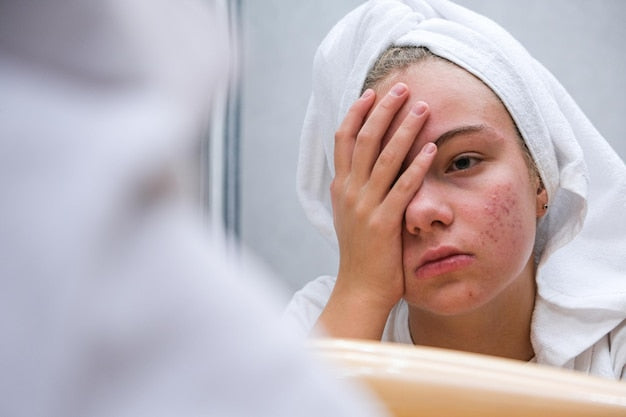Understanding Obesity as a Significant Risk Factor for Folliculitis
As a beautician, understanding the complex relationship between obesity and skin conditions is crucial. Among various skin concerns, folliculitis stands out as a prevalent issue. In recent times, studies have begun shedding light on obesity as a risk factor for folliculitis, providing insights into how excess weight influences skin health.

The Impact of Obesity on Skin Health
The skin is the body's largest organ and reflects our internal health. As a beautician, you know that maintaining healthy skin requires not only the right treatments but also a balanced lifestyle. Obesity can complicate this balance significantly by altering the bodys natural processes. Excess fat can lead to increased inflammation, which is a precursor to many skin conditions, including folliculitis.
What is Folliculitis?
Folliculitis occurs when hair follicles become inflamed, often due to bacterial or fungal infection. It can manifest as small red or white bumps around hair follicles and can be both itchy and painful. In severe cases, it might lead to scarring or permanent hair loss. For more comprehensive insights on folliculitis, visit this external resource.
How Obesity Contributes to Folliculitis
The connection between obesity and folliculitis lies in the systemic inflammation that obesity triggers. This inflammation can weaken the immune response, making the skin more susceptible to infections like folliculitis. Obesity can also lead to excess sweating, which creates a moist environment, ideal for bacterial and fungal growth.
It's worthwhile to note the role of lifestyle changes in managing and reducing folliculitis. A detailed approach is outlined in this article on mitigating body acne and similar skin conditions through lifestyle interventions.
Preventive Measures and Treatment Options
For those struggling with obesity and folliculitis, preventive measures include maintaining a healthy weight and ensuring proper skin hygiene to reduce bacterial growth. Regular use of topical treatments and antifungal cleansers can also help keep folliculitis at bay. For a guide on choosing suitable antifungal face washes, you might find this read beneficial.
Diving Into Treatment Options
Several options exist to treat folliculitis if it occurs. These range from over-the-counter ointments to prescription medications, depending on the severity. For further understanding of how medications might trigger folliculitis, refer to this insightful piece.
Conclusion
The interplay between obesity and folliculitis underscores the importance of a holistic approach in skincare. By addressing the root causes and considering lifestyle changes, beauticians can guide clients towards healthier skin. For more depth on managing immune responses to skin conditions, explore this article.

Frequently Asked Questions
What are the initial signs of folliculitis?
Folliculitis typically appears as small red or white bumps around hair follicles, often accompanied by itching or discomfort.
Can obesity directly cause folliculitis?
While not directly causing folliculitis, obesity increases the risk by promoting conditions favorable to bacterial and fungal infections.
What skincare routines can help manage folliculitis?
Regular cleansing with antifungal washes and maintaining a dry, clean skin environment are key steps in managing folliculitis.

